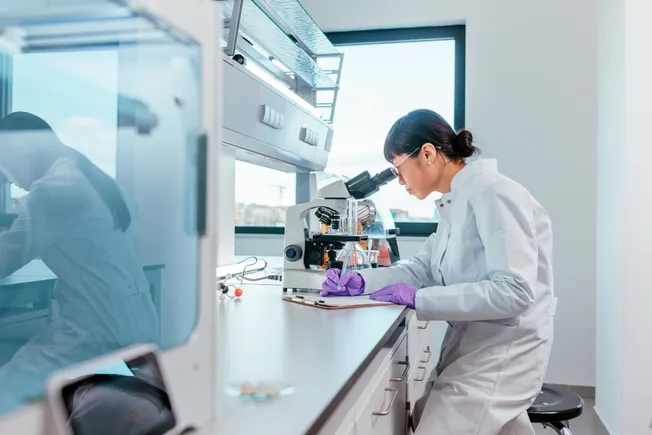GenAI and real-world data in pharma: 4 questions to fuel effective insights


Generative AI (GenAI) has become one of the most talked-about innovations in healthcare analytics, but for life sciences organizations, simply deploying an AI-powered solution is not enough. To truly unlock the power of real-world data (RWD), GenAI must go beyond checking a box or riding the latest buzzword wave. It should provide a guided, intuitive experience that aligns with regulatory standards and commercial and clinical teams’ needs.
GenAI has the potential to paint a more complete picture of the patient journey, but to deliver real value, life sciences companies must ask the right questions of their technology partners. Here are four key questions to consider when evaluating a GenAI solution.
1. Is the Platform Easy to Use—and Data Agnostic?
Ease of use is important. Life sciences teams work with a wide variety of data sources, and they need a GenAI tool that can integrate across them without friction. Whether they’re working with claims data, labs data, or EMRs, the platform should enable seamless toggling between data types and allow users to define cohorts based on clinical and business criteria relevant to their specific research questions.
Furthermore, training GenAI on healthcare data itself can present major regulatory challenges. Life sciences companies need a solution that delivers the ability to use GenAI on all data sources without causing any security concerns.
A data-agnostic GenAI tool ensures flexibility and usability, helping teams create tailored patient profiles without deep technical expertise. It’s also critical that the solution aligns with regulatory standards for RWD use, ensuring confidence and compliance from the start.
2. Does the Solution Prioritize Transparency?
GenAI can be a powerful accelerator but without transparency, it risks becoming a black box. Life sciences teams need clarity on how AI-generated insights are created, especially when decisions could impact regulatory filings or commercialization strategy.
Platforms like Panalgo’s IHD, when paired with Ella AI, offer a different approach. Built on a standardized data model, this integrated solution provides a transparent, traceable workflow. Instead of coding from scratch or configuring queries for each new data source, users work within a consistent and compliant environment—eliminating ambiguity while preserving speed and scale.
3. Can the Platform Be Precise AND Flexible?
By nature, GenAI generates content probabilistically, meaning responses might vary slightly each time. But for life sciences use cases, consistency and precision aren’t optional. Pharma teams need to trust that outputs are accurate, reproducible, and grounded in the right data.
Ella AI addresses this need by orchestrating AI outputs within a controlled, structured environment. When layered onto IHD, it enables not just question answering, but decision support at the highest levels—guiding teams through study design choices or cohort generation with precision.
Not all data sources, or GenAI tools, offer this level of flexibility and reliability. The key is to combine dynamic capabilities with structured oversight, letting users move from insight to action without compromising quality.
4. Does It Come with Consulting and Advisory Expertise?
GenAI should never operate in a vacuum. Its real power emerges when it’s backed by human expertise—especially in a field as complex as life sciences. That’s why the most effective solutions act like a concierge: the AI might greet you, but there’s a team of expert agents behind the scenes ready to contribute to the conversation.
By enabling multi-agent orchestration, life sciences companies can bring together diverse sources of expertise and data in a single, natural conversation. Whether the task is selecting the right comparator arm, choosing an appropriate data source, or refining an analytic approach, users get nuanced insights without needing to manually script each step.
This depth of context and flexibility helps pharma teams make smarter decisions faster, without compromising the scientific integrity of their work. The future of healthcare analytics isn’t just GenAI—it’s GenAI grounded in transparency, flexibility, and domain expertise.
Fully integrated with Panalgo’s IHD platform, Ella AI makes it easier for life sciences teams to understand patient journeys, refine study designs, and accelerate evidence generation. Want to find out more? Learn more here or contact us to get started.
This post has been syndicated from a third-party source. View the original article here.




